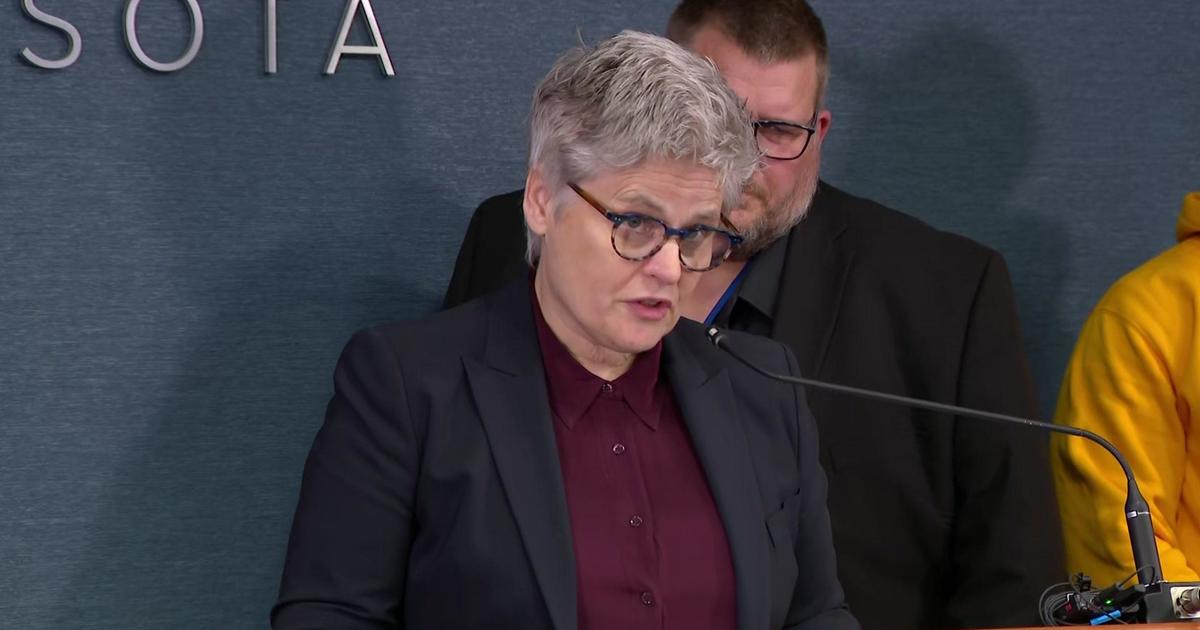Starting State Medical-Pot Program No Easy Task
ST. PAUL, Minn. (AP) — It took years, many false starts and a veto of prior legislation, but Minnesota medical marijuana advocates finally succeeded in getting a bill that's on track to become law in a matter of days.
The state Legislature approved it Friday night in separate House and Senate votes that drew Democratic and Republican backing.
Now comes the hard part: setting up a system to administer the drug by July 1, 2015.
"The timeline is very aggressive," said Health Commissioner Ed Ehlinger, whose agency will oversee the program. "This has high visibility. It's controversial. And both sides will be watching."
Other trouble spots could be provisions that might keep some doctors and patients from participating, or make it difficult for companies interested in making or dispensing the drug to make enough money to join the program.
For all that, Ehlinger praised the agreement reached Thursday by House and Senate negotiators. A pediatrician and internal-medicine specialist, Ehlinger likes the requirement that doctors collect data on how the treatments work and submit then to the state Health Department.
"We're going to get some data that no one else has," Ehlinger said. "Other states are reeling because they don't have data. Some people might criticize our program as the most restrictive in the country. But the approach is reasoned to get us where we want to go more safely, and perhaps, more quickly."
Minnesota's legislation makes it the only state to explicitly ban smoking the drug. It also prohibits patient access to plant material. Instead, the drug would be available in oil, pill and vapor form.
Eight medical conditions would qualify for treatment, including cancer, glaucoma and AIDS, with a possible ninth if the health commissioner acts on a House amendment requesting that "intractable pain" be considered. The terminally ill also could qualify.
Patients would receive an identification number if a doctor, a physician assistant or advanced-practice registered nurse certified a qualifying illness existed.
Twenty-one other states and the District of Columbia have legalized marijuana for medical use.
The toughest task for Minnesota will be creating the structure that governs the doctor-patient-Health Department relationship, said Dr. Steve Jenison, who was the first medical director of New Mexico's medical-cannabis program. He served in that role from 2007-10.
"Part of it is going to depend on how well and efficiently the state enrolls people in the program, because that's the market," Jenison said in a phone interview. The New Mexico Health Department doesn't collect patient-treatment data, nor is it responsible for defining marijuana products and their doses, as the Minnesota Health Department would be, Jenison said.
The data collection could affect how many people sign up for the program, said Robert Capecchi, deputy director of state policies for the Washington, D.C.-based Marijuana Policy Project, which advocates legalizing marijuana. He said the reporting requirements will require more of doctors' time, more doctor visits for patients, and because insurance won't cover medical marijuana, more money coming out of patient pockets.
"These restrictions could limit physician participation, which would have a direct effect on how many patients are able to be certified to access marijuana from the points of distribution," Capecchi said.
Sen. Branden Petersen, R-Andover, questioned whether participation in Minnesota's program will be financially viable for manufacturers and distributors. During debate in conference committee, he cited a fiscal note that used Arizona as a model to project Minnesota enrollment at 5,020 people per year. But the fiscal note said Minnesota may fall short of that "because Arizona permits cannabis to be smoked while this legislation does not."
"It just doesn't add up and ultimately it might not end up serving anybody," Petersen said.
Not necessarily, said Capecchi, of the Marijuana Policy Project. The Washington, D.C., program also has a limited population and includes only four qualifying conditions, yet still sustains multiple cultivators and dispensaries.
"I understand that there are vast geographic differences between D.C. and Minnesota, so I think that Sen. Petersen's concerns were and continue to be very valid and it's an issue that should be watched closely moving forward," Capecchi said.
(© Copyright 2014 The Associated Press. All Rights Reserved. This material may not be published, broadcast, rewritten or redistributed.)



